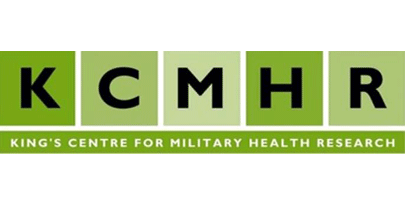Evaluation report launched exploring Armed Forces loneliness
The King’s Centre for Military Health Research (KCMHR), King’s College London in collaboration with Neighbourly Lab and the Campaign to End Loneliness are pleased to announce the launch of their evaluation work - Tackling Armed Forces Loneliness: An Evaluation of the Armed Forces Covenant Fund Trust’s Tackling Loneliness Programme.
This in-depth evaluation looks at the success of the Trust's Tackling Loneliness programme, including identification of best practices. It also explores loneliness and its effect on the Armed Forces community.
Why tackle loneliness?
In 2020, the Trust ran a consultation with the Armed Forces community to discover how important it was for them to focus on reducing social isolation and improving integration and engagement with provision. 90% of respondents said the Trust should focus on social isolation in their future grant making. From this, the Trust developed the Tackling Loneliness programme and awarded 60 projects a share of £4million to tackle loneliness, with focus on specific groups within the Forces community, including LGBTQ+ communities, veterans living in remote areas, female veterans, ethinic groups and veteran carers.
Previous research by KCMHR also identified that during the pandemic, 27% of veterans reported loneliness and some groups were more at risk such of loneliness such as health and social care key workers, those who lived alone, and those who had children or caring responsibilities.
Making a positive difference
The Tackling Loneliness evaluation report explores the outcomes of the Trust's funding – what works, what lessons can be learned, and the many ways funding was used to make a positive difference.
Anna Wright, CEO of the Trust, explains.
The evaluation found multiple examples of services reaching out, supporting people and creating engaging activities that are meaningful and interesting.
Robin Hewings of the Campaign to End Loneliness said:
Working together
The evaluation found many examples of organisations working together to maximise the success of their projects. It also looked at the valuable relationship with the funded mentor organisations and their role in providing support and opportunities to come together.
Emma Bowkett from Neighbourly Lab said:
What next?
With the experiences and evidence gathered from the funded projects, as well as the mentor organisations who supported awardees, the evaluation has created a useful toolkit.
Professor Nicola Fear, Co-Director of the King’s Centre for Military Health Research, King’s College London explains.
Read the report
Read the Tackling Armed Forces Loneliness Evaluation Report here and check out our Knowledge Network for an Impact Gallery (featuring quotes and interesting snippets from the funded projects) and the Tackling Loneliness Toolkit.
Find out more on the Tackling Loneliness programme here, including a full list of awarded projects and mentors.
